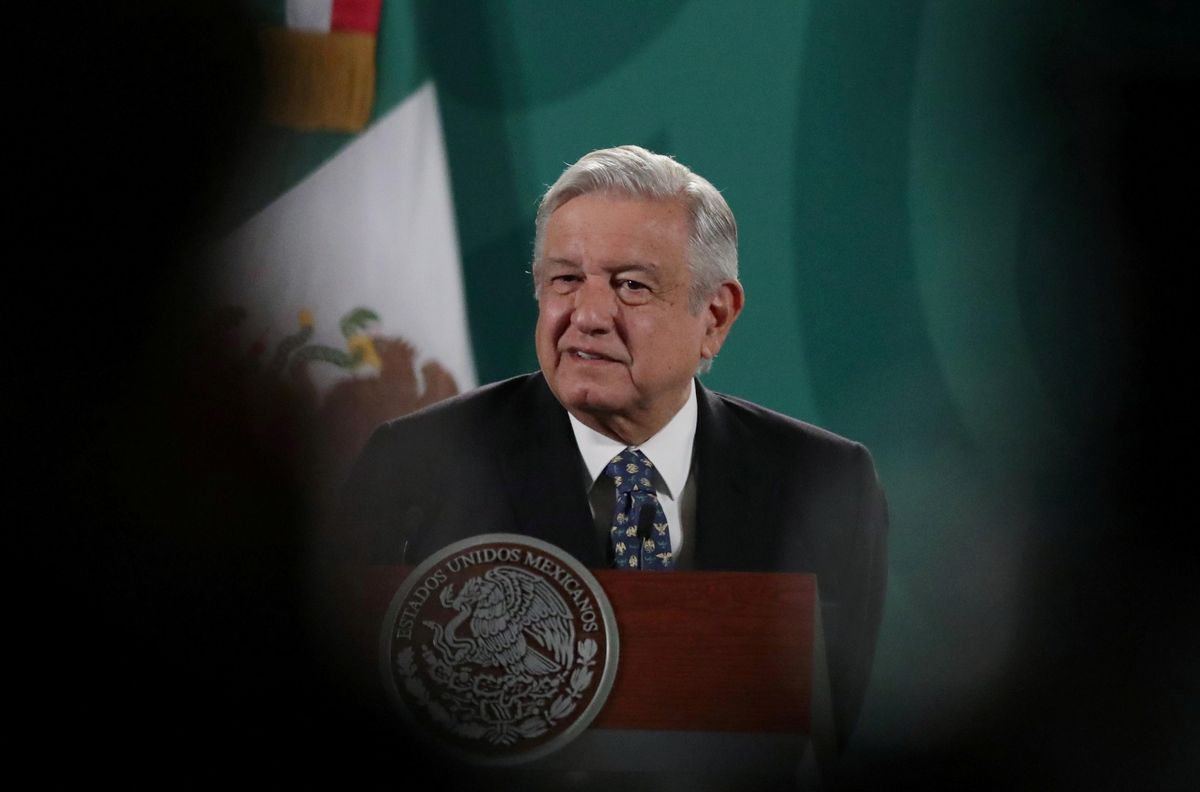Mexicans will go to the polls Sunday to choose their representatives for the lower house of congress and the governors of 15 of their country's 32 states. Halfway into President Andrés Manuel López Obrador's six-year term, the vote will test public support for his efforts to expand government control of the economy and improve living standards for all Mexicans.
The veteran leftist leader won election in a landslide in July 2018, and though he remains very popular, cracks in his support have appeared. Eurasia Group experts Ana Abad, Carlos Petersen, and Daniel Kerner explain what's at stake on Sunday for the president.
How will the midterm results affect Lopez Obrador's agenda?
The ruling Morena coalition currently holds two-thirds of the seats in the lower house of congress, which has given the president plenty of room to advance legislation to ramp up social spending, launch big infrastructure projects, and tighten regulations on private enterprise. It has also allowed him to make amendments to the constitution, which he has done to push through sweeping changes in areas such as education, the armed forces, and the compensation of government employees. The coalition holds 60 percent of the seats in the Senate and López Obrador has been able to convince a few additional senators to vote in favor of most of these amendments, though the opposition has managed to block some of the more controversial ones.
If Morena keeps its two-thirds majority in the lower house, López Obrador is expected to pursue a constitutional reform to strengthen the role of state-owned firms Pemex and the Federal Electricity Commission in the country's large energy sector, essentially undoing changes made by the previous administration to attract more private investment.
What about the governor races?
Given that Morena currently governs only one of the 15 states holding elections, this electoral cycle offers the coalition a good opportunity to extend its power at the state level.
What are Morena's prospects?
One of the world's worst COVID outbreaks — with its attendant economic fallout — has had a limited impact on views of the president and the ruling coalition. López Obrador's approval ratings remain high, at nearly 60 percent. He swept to power in 2018 promising to ramp up social spending and to put an end to what many viewed as rampant corruption, and that message continues to resonate. Signs of a post-pandemic economic recovery and the vaccine rollout, though advancing slowly, are helping perceptions that conditions are improving somewhat.
But a tightening in some of the gubernatorial races could signal that discontent with the president is broader than polls are suggesting. Certainly, relations with the business community are strained, which has resulted in low levels of private-sector investment. In addition, the pandemic has been poorly managed and the president's single-minded focus on advancing priority legislation to the exclusion of nearly all else has drawn growing criticism and increased levels of polarization.
Is López Obrador transforming the country?
López Obrador claims to be turning Mexico into a more equal society after decades of governments that in his view privileged the business community and elites. He has centralized decision-making and expanded the control of the executive over all branches of government — a form of governance he views as more effective and less corrupt, though one that has prompted charges of authoritarianism. At the same time, to help finance priority projects, the president has shifted resources away from programs he does not favor and from many government agencies.
So, will these changes outlast López Obrador?
Much will depend on the outcome of the midterm elections. Mexican presidents serve a single term, so López Obrador would like to preserve his lower house majority — preferably a two-thirds majority — to allow him to continue with his agenda and choose a successor he thinks will preserve and extend his legacy. Yet even in the event that the ruling coalition fails to win more than one-half of the seats in the lower house (an unlikely outcome), prompting a situation of legislative gridlock, many of the changes López Obrador has wrought would remain. Chief among these is the new shape of government. Starved of funding, many agencies have been forced to reduce personnel and abandon functions they used to perform.
What does López Obrador's agenda mean for the US?
The Mexican president prefers to focus on domestic issues. Still, he recognizes the importance of the relationship with the US and has tried to maintain good relations with Mexico's northern neighbor, even when Donald Trump was president. López Obrador acceded to many of Trump's demands on immigration — for example, by helping stop migrant flows from Central America. Under US President Joe Biden, the bilateral relationship has reverted to its pre-Trump normal of government agencies dealing with the relevant cross-border issues.
Yet López Obrador's plans to extend state control over the country's energy industry have encountered resistance in the US, as many of the firms that invested in the sector during the opening of the previous Mexican administration are from the US. As López Obrador considers making constitutional changes to further curb private participation in the energy sector, US companies could ramp up pressure on the Biden administration to intervene on their behalf.
Ana Abad is Associate, Latin America; Carlos Petersen is Senior Analyst, Latin America; and Daniel Kerner is Managing Director, Latin America at Eurasia Group.
- Mexico's man of the people - GZERO Media ›
- Why election reform laws are deadlocked on Capitol Hill - GZERO Media ›
- Why election reform laws are deadlocked on Capitol Hill - GZERO Media ›
- Latin America faces post-pandemic "lost decade," says economic historian Adam Tooze - GZERO Media ›
- Who's arriving at the US-Mex border | The Graphic Truth - GZERO Media ›






